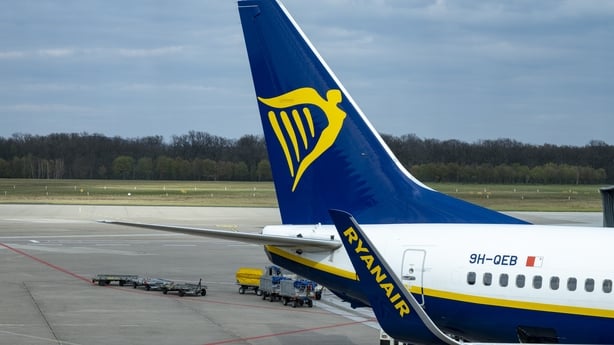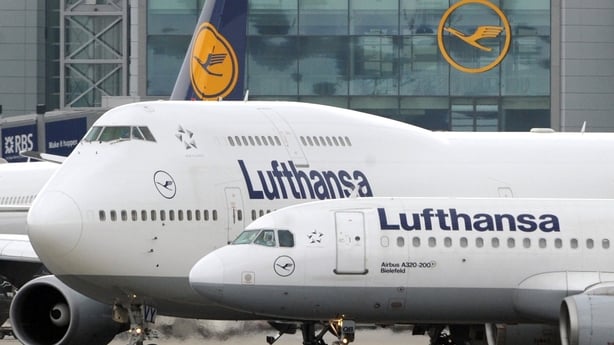Ryanair will have to revise down its passenger traffic estimates for next year because of expected aircraft delivery delays from Boeing, the budget airline's group CEO Michael O'Leary said today.
The move comes as an ongoing strike at Boeing has raised concerns about worsening delays at the planemaker, which has already faced challenges with deliveries for much of this year amid a broader crisis around its safety reputation.
"We were supposed to get 20 deliveries before the end of December. They'll probably come now in January and February, and that's fine. We'll have them in time for next summer," Michael O'Leary told Reuters in an interview today.
"The big issue for Ryanair is we're due 30 aircraft in March, April, May and June of next year, and how many of those will we get?" he said.
"I think we're clearly going to walk back our traffic growth for next year, because I don't think we're going to get all those 30 aircraft," he added.
The comments from Europe's biggest budget airline are among the strongest yet on the capacity constraints in the sector as Boeing and Airbus struggle to meet delivery goals amid supply chain challenges.

Michael O'Leary said that in his 30 years in the industry he had never seen capacity constraints to the current extent.
"We want to avoid next year what we had this year. We had geared up, we crewed up the 50 aircraft, and then we only got 30 - we were overcrowded, over-staffed. We took a significant cost penalty this year," he added.
The comments come after Emirates President Tim Clark said the Middle Eastern carrier would have "a serious conversation" with Boeing about delivery delays tied to its 777X.
Michael O'Leary said he was having weekly talks with Boeing's operations chief Stephanie Pope about delivery delays and was set to meet with Boeing CEO Kelly Ortberg in the coming weeks.
He said the talks with the US planemaker were focused on "where we're getting in terms of the certification ... getting the MAX 10 certified," referring to a new version of Boeing's top-selling narrow-body jet.
He also praised Boeing's handling of its labour unrest to date.
"I think the announcement on job cuts is the sensible one to get the unions into some sort of space where they cut a deal," he said.
On the conflict in the Middle East, Michael O'Leary said Ryanair would take its cues from Europe's aviation regulator EASA.
"Safety is a black and white issue. If EASA says it's safe, we're not interested in what some pilots and unions say," he said.
Ryanair has stopped flying to Tel Aviv in Israel as well as Jordan's Amman and Aqaba airports.
European airlines demand 'level playing field' with Chinese rivals
European airlines have today urged Brussels to do more to secure a level playing field in the industry, complaining that Chinese rivals enjoy a huge cost advantage because they can fly over Russia and do not face extra environmental costs.
Action is all the more important because many carriers are also facing delivery delays as planemakers Airbus and Boeing struggle with supply chain problems and, in Boeing's case, industrial action, the airlines said.
At an industry meeting in Brussels, Lufthansa CEO Carsten Spohr said all flights into Europe should be required to avoid Russian airspace to ensure fair competition.

"We are not allowed to cross Russia but Chinese carriers are. If you want a level playing field, we need to ensure any airline landing in Europe avoids Russian airspace. Until that happens there will be enormous advantages to Chinese carriers," he said.
He also said that Chinese airlines did not have costs related to Europe's emissions trading system, describing that as another "financial advantage".
Airlines also lamented the uncertainty caused by aircraft delivery delays, although budget carrier Ryanair noted the capacity constraints would be good for ticket pricing.
Air France-KLM said it was impacted by Pratt & Whitney engine issues with its Airbus A220 orders.
Lufthansa also said it had never seen delays like those for the Boeing 777X, adding they had reached around five years.

